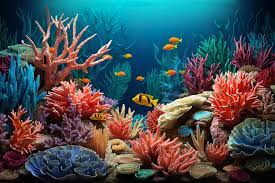
Coral reefs thrive in parts of the world’s oceans that are low in nutrients. This mystery has puzzled scientists for centuries and has become known as the “Darwin paradox of coral reefs”. Our new study adds the missing piece of the puzzle. We found that many species of coral cultivate and feed on the microscopic algae that live inside their cells. This vegetarian diet allows the corals to tap into a large pool of nutrients that was previously considered unavailable to them.
Stony corals are soft-bodied animals made up of many individual polyps that live together as a colony. They secrete limestone skeletons that form the foundation of reefs. The coral polyps acquire nutritious compounds rich in nitrogen and phosphorus by catching prey like zooplankton with their tentacles.
Many coral animals are also dependent on a symbiosis – a mutually beneficial relationship – with the microscopic algae that live inside their cells.
These photosynthetic algae produce large amounts of carbon-rich compounds, such as sugars, and transfer them to the host coral to generate energy. However, as most photosynthetic products are deficient in nitrogen and phosphorous, they cannot sustain the growth of the animals.
Our findings suggest that, while coral animals may survive brief periods of starvation by feeding on their symbionts, some coral reefs could face the risk of prolonged nutrient deficiency due to global warming. This is concerning.